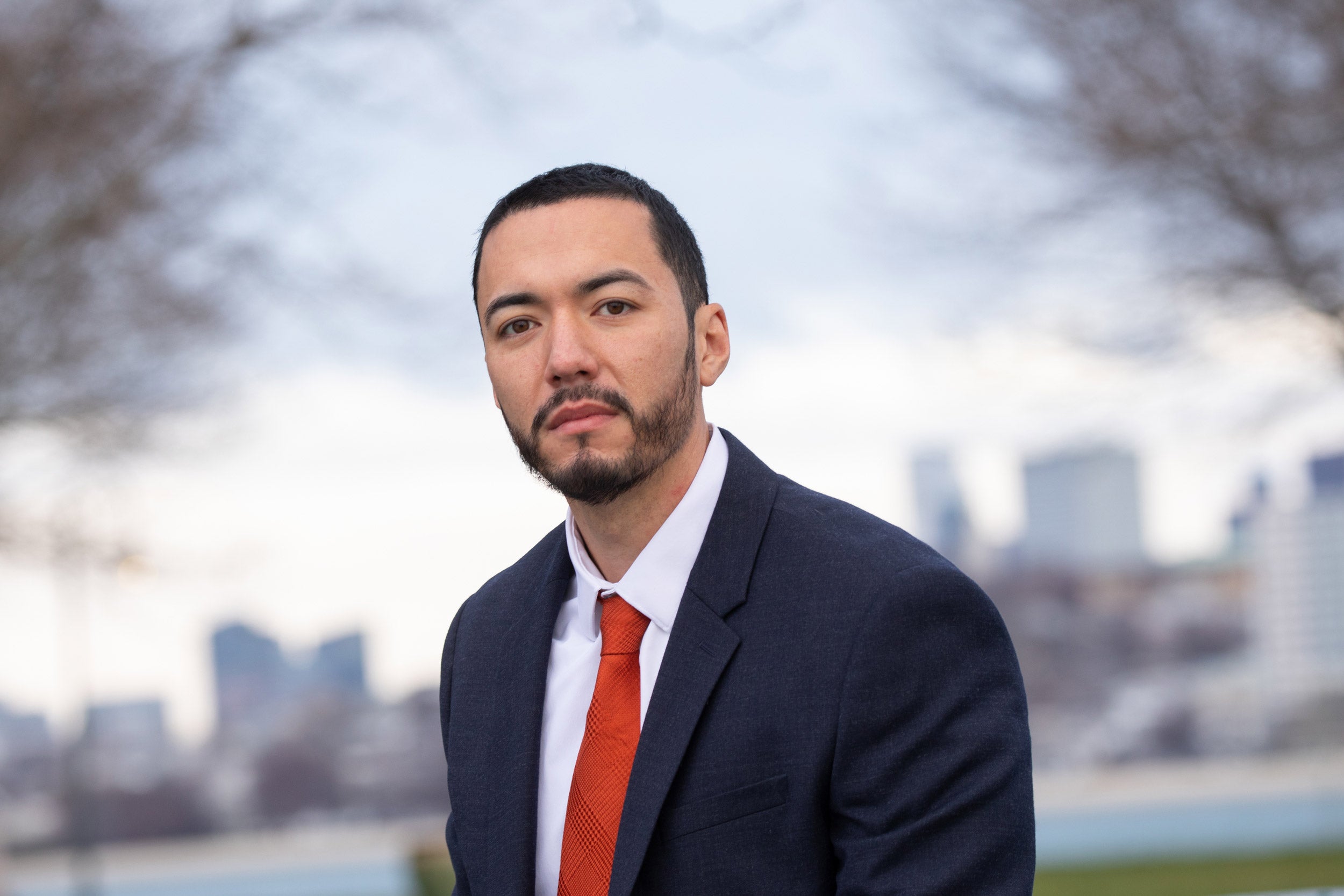Christopher Lewis, a political philosopher and scholar of the criminal legal system, has been named an assistant professor of law at Harvard Law School, effective January 1.
Lewis’s research explores how law, particularly criminal law, can be more fairly administered in response to social and economic inequality in the United States.
“I am delighted that Chris Lewis has decided to join the HLS faculty,” said John F. Manning ’85, the Morgan and Helen Chu Dean and professor of law at Harvard Law School. “Chris brings philosophical rigor and deep insight to highly consequential questions about criminal justice, and his thoughtful and broad-ranging interdisciplinary approach will contribute greatly to research, teaching, and learning at HLS while also creating wonderful opportunities for collaboration across Harvard University.”
In one series of papers, Lewis defends the idea that social and economic disadvantage should mitigate one’s liability to legal punishment for most crime, and argues that both repeat- and high-risk offenders should be punished less severely than first-time and low-risk offenders—the opposite of what current law and policy mandates.
He is also working on a book project with Adaner Usmani, an assistant professor of sociology and social studies at Harvard, tentatively titled “What’s Wrong with Mass Incarceration?”. The book draws on both empirical research and philosophical reasoning about the moral values at stake to defend an unconventional answer to the question it poses.
Lewis’s scholarly work also addresses questions about the kinds of racial categories administrative agencies should track in demographic data collection, along with problems concerning the moral status of mechanisms through which advantage and disadvantage are transmitted in schools and families.
Lewis is completing a three-year term as a junior fellow in the Harvard Society of Fellows, a prestigious three-year program that gives scholars at early stages of their careers an opportunity to pursue their studies in any department of Harvard University.
Harvard Law School Professor Noah Feldman, who serves as chairman of Harvard’s Society of Fellows, said: “Chris Lewis is a brilliant young philosopher. He is working on one of the hardest moral problems facing our society today, namely the justice or injustice of the ways we punish people convicted of crimes. In the best tradition of the Society of Fellows, he reaches conclusions that are surprising and counter-intuitive and may change the way we think about his field.”
Before joining Harvard as a fellow, Lewis simultaneously pursued a J.D. at Stanford Law School and a Ph.D. in Stanford’s Department of Philosophy, supervised by Debra Satz. While at Stanford, he was awarded a 2013 Ford Foundation Public Interest Fellowship to pursue work at the Sentencing Project in Washington, D.C., where he focused on policy research on race and punishment. In 2014, he worked on prison conditions litigation while a fellow at the Equal Justice Initiative, in Montgomery, Alabama.
Born and raised in Boston, Lewis began his studies at the University of Massachusetts, Boston, where he earned a B.A. in two years without any advance placement or transfer credits. He went on to earn an M.A. in philosophy from Columbia University in 2010. From 2010 to 2012, he studied political theory at Balliol College, Oxford University under the supervision of Adam Swift.
“I hated school growing up. I enrolled at UMass after dropping out of high school and spending several years in the workforce. I just wanted to get a degree in accounting or something like that as fast as I could and get back to work. But I had such wonderful and extraordinary professors there—in particular, Larry Blum and Ajume Wingo. They opened my eyes to the intricacy and nuance of interrogating the moral logic that underlies our most divisive political and legal debates. And they showed me how much pleasure can be derived from trying to do that as rigorously and precisely as possible. I fell in love with it and wanted to continue my studies forever,” said Lewis. “I’m thrilled that Harvard has given me the opportunity to keep working on the puzzles I discovered at UMass, and happy that my studies have brought me back to the Boston area, which has fundamentally shaped how I think about those puzzles.”
Last year, Lewis went back to UMass to teach the same course on “Race and Racism” that he took with Professor Blum in 2007 (Blum retired from teaching in 2018 but is still an active scholar). At Harvard, Lewis will teach Criminal Law, Race and the Law, and a workshop in Law and Philosophy.
